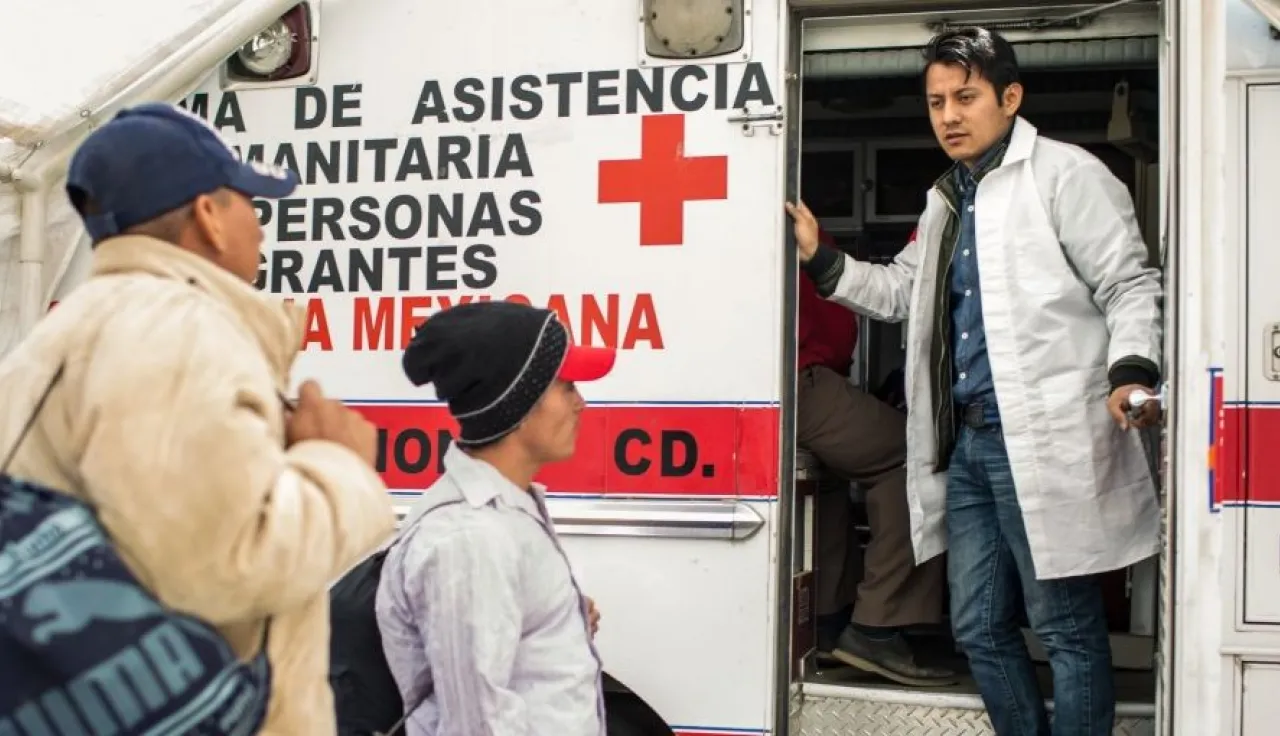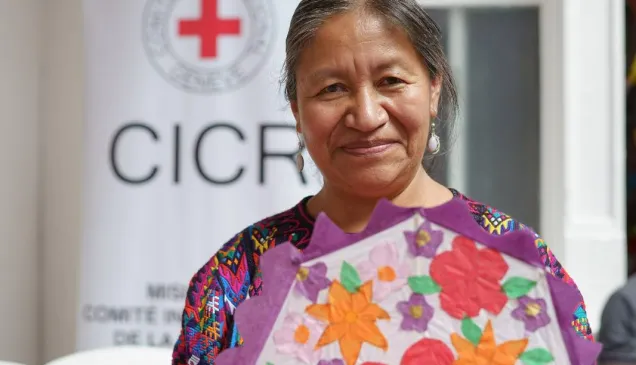Health workers are saving lives and must be treated with respect to beat COVID-19: ICRC and Mexican Red Cross

Mexico City - The International Committee of the Red Cross (ICRC) and the Mexican Red Cross are greatly concerned about the rising number of attacks on health care workers and health facilities in Mexico.
"During this crisis sparked by the pandemic, it is more necessary than ever for everyone to display solidarity, humanity and kindness. Medical staff should be treated with respect and appreciation," was the two organizations' emphatic message, highlighting the importance of humanitarian work, to mark World Red Cross and Red Crescent Day.
"We are seeing an increasing number of attacks on healthcare workers – including those working in public and private hospitals, ambulance drivers and colleagues in the Mexican Red Cross – by certain people who regard them as potential sources of infection. This is something that we roundly condemn. We call on everyone to show respect and behave responsibly in order to support these workers and help them to do their work: they are saving our lives," said Jordi Raich, the head of the ICRC regional delegation for Mexico and Central America.
Figures supplied by the Mexican Ministry of the Interior show that, by April, at least 27 attacks on health care workers had been recorded in 22 states. Most of them had been directed against nursing staff (80 per cent of recorded cases) and women (70 per cent of recorded cases).
According to information from the government department, the usual pattern is to spray the person with cleaning liquid, often chlorine, and to bar access to public transport or shops. The worst, albeit isolated, cases include death threats, one involving a firearm.
The ICRC and the Mexican Red Cross stress that medical staff, health facilities and vehicles carrying patients must be respected and protected at all times.
The President of the Mexican Red Cross, Fernando Suinaga Cárdenas, called on society to show respect for Red Cross paramedics and for health care workers in general throughout the country, because their humanitarian work is of paramount importance to saving lives in the health emergency caused by COVID-19.
"The country's pre-hospital and medical services are offering a lifeline to thousands of Mexicans at the moment. That is why it is essential to appreciate, respect and recognize their work, because they are on the front line of the health emergency," said the head of the Mexican Red Cross.
Suinaga Cárdenas noted that, since February, when the Mexican Red Cross started to adhere to a Biosafety Manual in its 32 state delegations, its training of more than 17,000 volunteers has served two main aims: first, to provide paramedics with unambiguous guidance and ensure their safety when carrying suspected coronavirus cases in ambulances and, secondly, to see to it that volunteers' safety equipment inspires the population's trust in their life-saving work.
These two humanitarian organizations draw attention to the fact that access to health services is a basic human right rooted in respect for the life and dignity of every human being, regardless of their location, origin or current situation. Injuring or assaulting medical personnel can hamper many people's right to access health care.
During this pandemic, medical staff's vulnerability is further exacerbated when they have to provide services in areas affected by various forms of violence, or where the health system is already under strain. Doctors, nurses, ambulance drivers, paramedics, hospitals, health centres, the sick and injured, must all be treated with respect in all circumstances.
As Jordi Raich pointed out, "The heroes of this pandemic are not film stars, but health personnel: nurses, doctors, paramedics and hospital cleaners. They are risking their health and that of their families to care for us and to heal us."
About the International Red Cross and Red Crescent Day
On the occasion of Red Cross and Red Crescent Day, we celebrate the courage and achievements of the millions of volunteers and the many staff of the Movement who, in carrying out their work before, during and after disaster situations, health crises, conflicts or situations of violence, keep in force, day by day, the organization's sense of commitment to humanity. The Movement serves locally and internationally, independently and impartially, and is present everywhere and for everyone.
For further information, please contact:
María Cristina Rivera, ICRC Communication Coordinator for Mexico and Central America:
+52 5527551794
Ana Olivia Langner, Public Communications Officer: +52 5537176427



